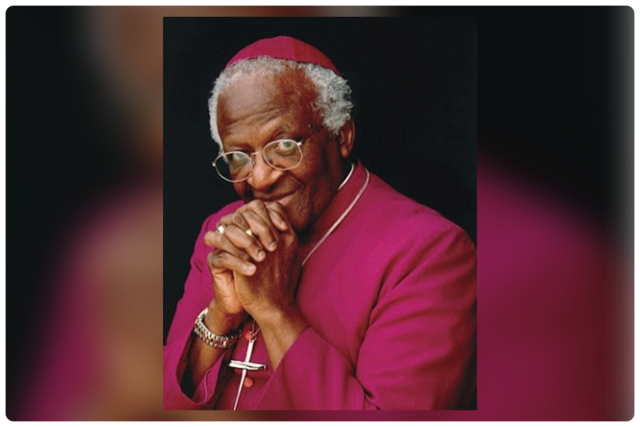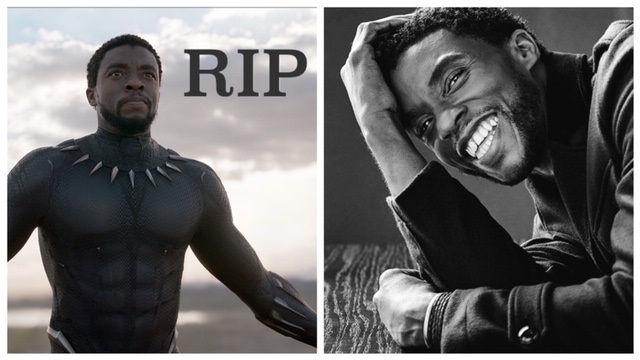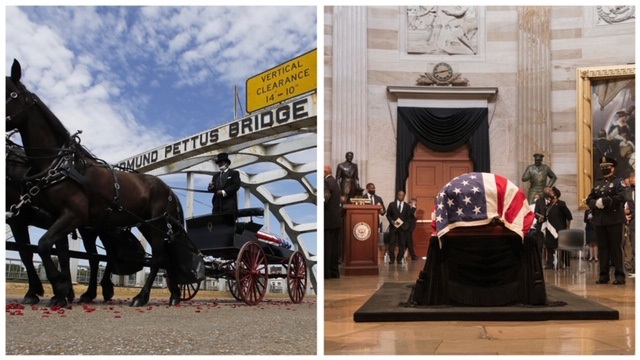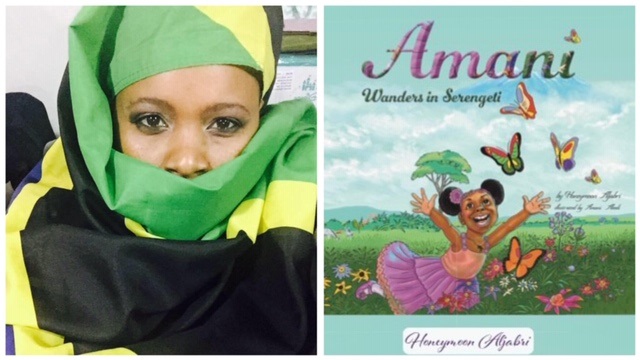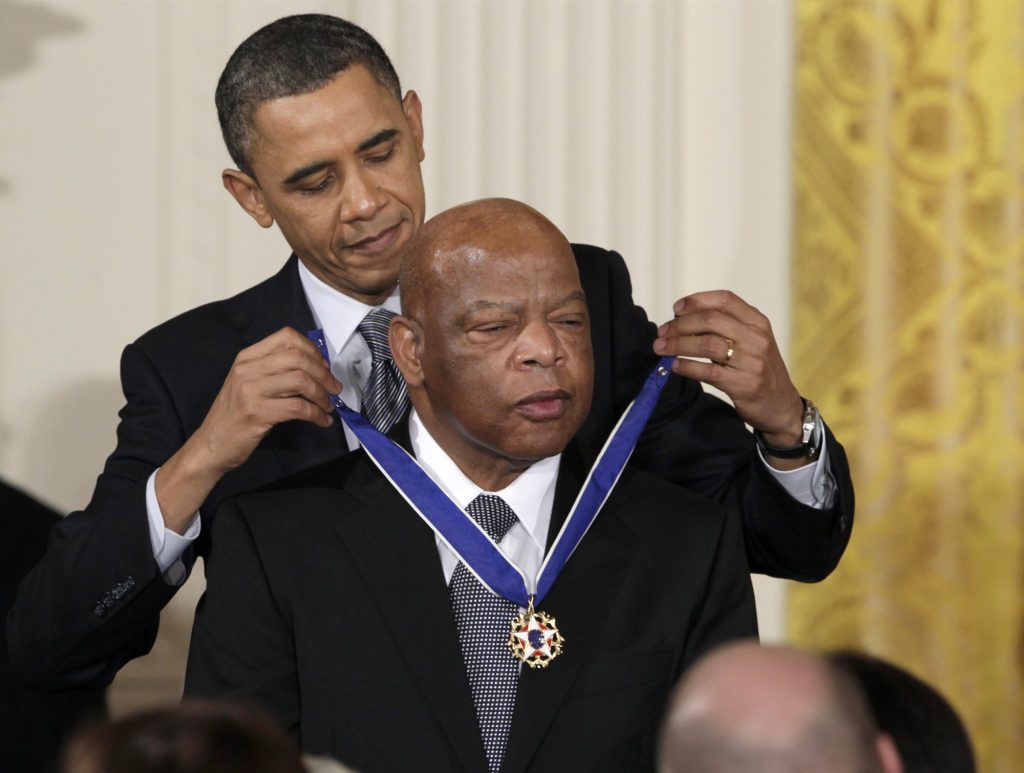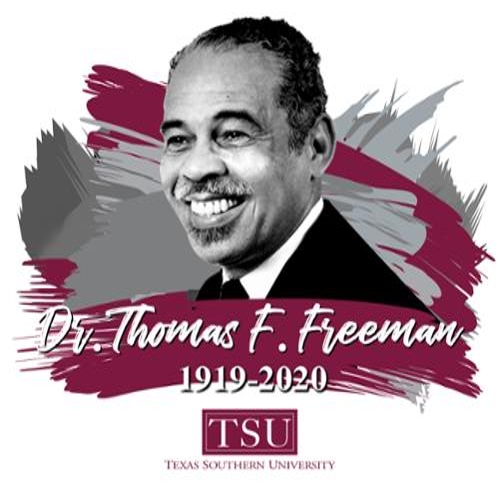World
Family, friends and dignitaries around the world were mourning the loss of Archbishop Desmond Tutu,who died Sunday at the age of 90, sparking a global outpouring of tributes to the anti-apartheid hero. He had been in poor health for several years. Desmond Mpilo Tutu was a South African Anglican bishop and theologian, known for his work as an anti-apartheid and human rights activist. He was Bishop of Johannesburg from 1985 to 1986 and then Archbishop of Cape Town from 1986 to 1996, in both cases being the first black African to hold the position. Theologically, he sought to fuse ideas from black theology with African theology. Tutu was born of mixed Xhosa and Motswana heritage to a poor family in Klerksdorp, South Africa. Entering adulthood, he trained as a teacher and married Nomalizo Leah Shenxane in 1955, with whom he had four children, including Mpho Tutu van Furth. In 1960, he was ordained as an Anglican priest and in 1962, he moved to the United Kingdom to study theology at King’s College London. In 1966 he returned to Africa, teaching at the Federal Theological Seminary in South Africa, and then the University of Botswana, Lesotho and Swaziland. In 1972, he became the Theological Education Fund’s director for Africa, a position based in London but necessitating regular tours of the African continent. Back in southern Africa in 1975, he served first as dean of St Mary’s Cathedral in Johannesburg and then as Bishop of Lesotho. From 1978 to 1985, Tutu served as the general secretary of the South African Council of Churches. He emerged as one of the most prominent opponents of South Africa’s apartheid system of racial segregation and white minority rule. Although warning the National Party government that anger at apartheid would lead to racial violence, as an activist he stressed non-violent protest and foreign economic pressure to bring about universal suffrage. In 1985, Tutu became Bishop of Johannesburg and in 1986 the Archbishop of Cape Town, the most senior position in southern Africa’s Anglican hierarchy. In this position, he emphasised a consensus-building model of leadership and oversaw the introduction of female priests. Also in 1986, he became president of the All Africa Conference of Churches, resulting in further tours of the continent. After President F. W. de Klerk released the anti-apartheid activist Nelson Mandela from prison in 1990 and the pair led negotiations to end apartheid and introduce multi-racial democracy, Tutu assisted as a mediator between rival black factions. After the 1994 general election resulted in a coalition government headed by Mandela, the latter selected Tutu to chair the Truth and Reconciliation Commission to investigate past human rights abuses committed by both pro and anti-apartheid groups. Following apartheid’s fall, Tutu campaigned for gay rights and spoke out on a wide range of subjects, among them his support of Palestinians in the Israeli–Palestinian conflict (alongside his simultaneous belief in Israel’s right to exist), his opposition to the Iraq War, and his criticism of South African presidents Thabo Mbeki and Jacob Zuma. In 2010, he retired from public life. As Tutu rose to prominence in the 1970s, different socio-economic groups and political classes held a wide range of views about him, from critical to admiring. He was popular among South Africa’s black majority and was internationally praised for his work involving anti-apartheid activism, for which he won the Nobel Peace Prize and other international awards. He also compiled several books of his speeches and sermons. He continued to be a change agent across the world for decades. In October 2010, Tutu announced his retirement from public life so that he could spend more time “at home with my family – reading and writing and praying and thinking.” In May 2013, he declared that he would no longer vote for the ANC, stating that while the party was “very good at leading us in the struggle to be free from oppression,” it had done a poor job in countering inequality, violence, and corruption. The following month, he welcomed the launch of a new party, Agang South Africa. After Nelson Mandela died in December 2013, Tutu initially stated that he had not been invited to the funeral; after the government denied this, Tutu announced his attendance. He criticised the memorials held for Mandela, stating that they gave too much prominence to the ANC and marginalised Afrikaners, commenting that Mandela would have been appalled. Tutu maintained an interest in social issues. In July 2014, he came out in support of legalised assisted dying,later stating that he would want that option open to him personally. In December 2015, Tutu’s daughter, Mpho Tutu, married a woman in the Netherlands. Tutu attended and gave the proceedings a blessing, despite Anglican opposition to same-sex marriage. Tutu continued commenting on international affairs. In November 2012, he published a letter alongside Mairead Maguire and Adolfo Pérez Esquivel in which they expressed support for the imprisoned US military whistleblower Chelsea Manning. In May 2014, Tutu visited Fort McMurray, in the heart of the Canada’s oil sands oil fields, and said, “The fact that this filth is being created now, when the link between carbon emissions and global warming is so obvious, reflects negligence and greed.” A month earlier he had called for an “an apartheid-style boycott [of corporations financing the injustice of climate change] to save the planet.” In August 2017, Tutu was among ten Nobel Peace Prize laureates who urged Saudi Arabia to stop the execution of 14 participants of the 2011–12 Saudi Arabian protests.[382] In September, Tutu asked Myanmar’s leader Aung San Suu Kyi to halt the army’s persecution of the country’s Muslim Rohingya minority. In December 2017, he was among those to condemn US President Donald Trump’s decision to officially recognise Jerusalem as Israel’s capital despite Palestinian opposition. Tutu died from cancer at the Oasis Frail Care Centre in Cape Town on December 26, 2021 at the age of 90. His daughter Naomi Nontombi said, “He was ready. He went to meet his God, ready and
GRAMMY® nominated rapper, dancer and singer-songwriter Raja Kumari has recently unveiled her new single, “Firestarter,” released via Mass Appeal India in partnership with Capitol Records. The record mixes trap beats with Indian classical music, continuing Raja’s mission to trailblaze a musical connection between the East and the West. The “Firestarter” video is directed by MTV VMA 2020 titleholder Michael Garcia. Emerging as a disruptive force in hip-hop, Raja Kumari received a songwriter award at the BMI Pop Awards, and is the host and curator of her own Apple Music Beats 1 show, The New India, where she spotlights some of India’s brightest new talents. Kumari is a series judge and mentor on MTV Hustle, India’s first rap-reality show, a global face of MAC Cosmetics, and the first female rapper to be signed to Mass Appeal India. Indo-American Kumari has been sought out for collaborations with Gwen Stefani, Iggy Azalea, Fifth Harmony, Knife Party, Fall Out Boy and more. “After the last 16 months that we spent in the pandemic it was important for me to put out something that represented what I was going through. I just love how universal the record is and how it’s for everyone. The song represents being reborn and rising from the ashes like a phoenix and the need to constantly reinvent yourself and not being fearful about it,” Kumari said. “This is my 25th music video and I have accepted now that it’s my job to make these visual pieces of musical art. It’s been almost two years since I’ve been on the set, specifically for my own independent music video, where it’s about the fashion and the production. This is the first time that I didn’t take the whole creation process too seriously as I wanted it to be fun and free flowing.”
“Black Panther” actor Chadwick Boseman, Black America’s beloved superhero, has died after a four-year battle with colon cancer. He was 43.
HOUSTON — Ding, ding, ding…in the left corner in the navy blue trunks is “Mr. I can say what I want to say in the name of ‘Art’ and ‘Hip Hop.’” And in the right corner, wearing a hot pink thong is “Ms. Did she really just say what I think she said?” In the wrestling ring of “Double Standards,” Cardi B and Texas Southern University’s Megan Thee Stallion have set the internet on fire with their collaboration, “WAP,” which means — we are not saying, just look it up for yourself! The sexually explicit lyrics have sparked a debate of whether these two female rappers have gone inappropriately overboard speaking so blatantly about sex. Come on now, Salt-N-Pepa said in the nicest way, “Let’s Talk About Sex,” but Lil’ Kim took the “sex talk” to a whole new level when she dropped her debut album, making her a “notorious” instant sex-cess (success). It is safe to say, that in these days, even the saintly “librarians” and “nurses” have undergone sexual makeovers thanks to Halloween costumes, accessorized with lace stockings and garter belts. Is it time that we just “get over it already?” Or is it time for us to teach our young women that we don’t have to show off all the curves that God blessed us with in the name of likes, shares and the almighty “make it rain” dollar-dollar-bill? James P. Bradley, a Republican congressional candidate who’s running to replace California’s Ted Lieu, said Cardi B and Megan Thee Stallion “are what happens when children are raised without God and without a strong father figure,” adding that the song “made me want to pour holy water in my ears.” But many others are saying “Lighten up” and are debating on social media. A post defending the “femcees” by Santa Patton, has gone viral. Patton lists the following reasons that some men are upset by the lyrics. The 10 Types of Men That Are Mad at WAP 1. Men that attended Freaknik annually and now have daughters 2. Men that have female superiors at their place of employment 3. Men that consistently have conversations with themselves in women’s inboxes 4. Men that thought the night cap went well…and are just now figuring out why they haven’t heard from her 5. Men who donated to the Dr. Umar Johnson school 6. Men who can not create WAP 7. Men who are waiting on the porch for that second stimulus check 8. Men who do not take rejection well 9. Hoteps that hold on to every word that Minister Farrakhan speaks UNTIL he starts telling men to love, honor and protect women 10. Men, who if we looked at their credit card history, we would see monthly charges for OnlyFans, PornHub, and a series of $40 cash app transactions Bonus: men who are oddly quiet-preachers, pastors and prophets #PPP4WAP Well, what do you have to say? Drop a comment and let us know!
WASHINGTON – A horse-drawn carriage, the American flag, military salutes and an outpouring of love and support from leaders across the nation, Rep. John Lewis was laid to rest in grand fashion. It’s not that anyone is surprised, but in true Donald Trump fashion, the president of the United States announced he would not be attending memorial services for the late civil rights leader who died July 17 from pancreatic cancer. Lewis was 80 years old. A six-day memorial service was planned for Lewis, who would lie in state at the Capitol. The public would be allowed to pay respects on Monday and Tuesday. “No, I won’t be going, no,” Trump told reporters. Q: “Do you plan on paying your respects to Congressman Lewis either today or tomorrow at the Capitol?” President Trump: “No. I won’t be going. No.” pic.twitter.com/dRYg3uCxpi— CSPAN (@cspan) July 27, 2020 Vice President Mike Pence and second lady Karen Pence, however, would be in attendance. Former Vice President Joe Biden and Jill Biden also honored Lewis. Lewis was known for making “Good Trouble.” The civil rights icon served in Congress for more than 30 years and fought against segregation and discrimination against Black Americans during the Civil Rights Movement. He was an organizer of the March on Washington, being the youngest speaker to address the crowd, and was also a member of the original Freedom Riders. He risked his life for what he believed in, having been beaten and jailed several times. Lewis made his final journey on Sunday across the famous Edmund Pettus Bridge in Selma, Alabama, where a 25-year-old Lewis and other unarmed marchers were met by state and local police who attacked them with clubs, fracturing Lewis’ skull in what became known as “Bloody Sunday.” “I gave a little blood on that bridge,” Lewis said about that day. “I thought I was going to die. I thought I saw death.” This time, 55 years later, the bridge was covered with rose petals in Lewis’ honor. John Lewis is carried across the Edmund Pettus Bridge, where he helped lead a march for voting rights in 1965, for the last time. The rose petals on the ground represent the blood spilled on Bloody Sunday. pic.twitter.com/EU0KPQo88l — philip lewis (@Phil_Lewis_) July 26, 2020 Trump and Lewis were not fans of one another. In 2017, Trump tweeted that Lewis was “all talk … no action or results,” after Lewis announced that he would not attend Trump’s inauguration. “I don’t see this president-elect as a legitimate president,” Lewis told NBC’s “Meet the Press” before the inauguration. “I think the Russians participated in helping this man get elected and they have destroyed the candidacy of Hillary Clinton.” Trump ordered the White House to lower flags to half-staff in honor of Lewis. He also tweeted his condolences. “Saddened to hear the news of civil rights hero John Lewis passing. Melania and I send our prayers to he and his family.” This is not the first funeral that Trump did not attend. He did not attend services for the late GOP Sen. John McCain or Rep. Elijah Cummings, who many say bore a striking resemblance to Lewis. We will forever be grateful to those who fought the good fight for us. No trouble like “Good Trouble.” We will make sure the legacy continues. #RIP
HOUSTON – A Texas Southern University alumna has released a book aiming to remove the negative imagery surrounding African children. Honeymoon Aljabri, an independent Tanzanian American filmmaker, wrote “Amani Wanders in Serengeti,” which follows the “Dora the Explorer” type of journey of a young girl who gets lost in the wild. “Amani is a little curious African girl who goes to the Serengeti with her parents. During her adventures, she gets lost in the jungle, where she ends up meeting new friends,” Aljabri said. Published by Fulton Books, “Amani Wanders in Serengeti” is a delightful story, filled with illustrations and colors, that teaches children the value of kindness and being a good child.” Aljabri also wanted to instill pride in African children, encouraging them to embrace their heritage, as well as expose other races and ethnic groups to the beauty of the continent. “I want the African kids to look at the pictures and feel they can have anything they desire. There are too many stereotypes about African children as having big stomachs and mucus in their eyes,” Aljabri said. “I want them to know they can reach their dreams and be whatever they want to be, while letting their imaginations fly.” Aljabari is publishing a series of Amani’s adventures as she takes us on journeys in Madasgar, Zanzibar and other places in Africa. “I want to connect African diaspora kids, helping them to learn more about each other and the historic and cultural blessings each place has,” Aljabri explained. Aljabri graduated from TSU in 2017 with a Bachelor Degree in Radio, TV and film. After studying at other Houston area colleges, she decided to attend Texas’ largest Historically Black College and University (HBCU) because it felt more like home. “I wanted to tell ‘our story’ and TSU was the closest to my culture. I believe if we do not tell our own story, then someone else is going to tell it, and possibly not the right way,” Aljabri said. “Dr. B was really nice, but very tough, and I learned a lot from her. Now when I look at Black films, I look at them from a different perspective. I know if I had gone to a different school, I would have seen things differently.” Aljabri’s films include Forgotten Hero (short film) 2012; Daddy’s Wedding (drama) 2015; Perfectly Oblivious (comedy drama) 2019 and Sechelela (drama) 2020. Aljabri has received numerous awards for her work, including Zanzibar International Film festival (Best Director-2015 ); Houston Community College Movie Award (Best Director – 2012); and World Fest International Film Festival (Gold Remi award -2017, and was nominated for African Magic Viewer’s Choice Awards (Best Film East Africa- 2016) Her children’s book, “Amani Wanders in Serengeti” can be found at bookstores everywhere, or online at the Apple iTunes Store, Amazon, Google Play or Barnes & Noble.
“I have admired the work of Congressman John Lewis for many years. His life’s work has truly inspired me to fight for what I believe in and social equality,” KTSU General Manager Ernest Walker said.
Dr. Thomas F. Freeman, a legend, educational icon, and sage to innumerable students at Texas Southern University, passed away on Saturday, June 6, following a brief illness at age 100. Dr. Freeman celebrated his centennial birthday this past June at TSU. Dr. Freeman was an esteemed debate coach, faculty member, orator and minister at Mount Horem Baptist Church in Houston. He was a revered educator and leader of the award-winning Debate Team at Texas Southern University since his arrival in 1949. Under his leadership, TSU debaters have garnered multiple national and international titles during its existence. “This is, most definitely, a sad day at Texas Southern University,” said TSU Interim President, Kenneth Huewitt. “Dr. Freeman exemplified all that is good about our university. His commitment, first and foremost, to his students, across eight decades of service, is what stands out in my mind as one of his greatest legacies. He offered all that he could in the pursuit of excellence. He expected the best from his students and colleagues, and he knew how to bring it out in everyone around him. Like the stars in the sky, the number of lives he influenced is beyond measure.” Dr. Freeman instructed such iconic national and global figures as Representative Barbara Jordan and Dr. Martin Luther King, Jr., and advised Academy Award winner Denzel Washington in the 2007 movie, The Great Debaters. When Washington was preparing for his role as a debate coach he needed the help of a master in this specialty. After a search for what he called the “best debate coach in the world,” he selected Dr. Freeman to provide that help. With the insights and guidance of Dr. Freeman, Washington and his creative team produced an exhilarating movie masterpiece. The Great Debaters, which earned a Golden Globe “Best Picture” nomination, shone a bright spotlight on the accomplishments of debate teams at Historically Black Colleges and Universities. In 2009, the TSU Board of Regents named the new Honors College after Dr. Freeman, helping to ensure that his legacy would forever inspire scholars at TSU to become leaders in the nation and the world. Prior to his arrival at TSU, Dr. Freeman received a Bachelor of Arts degree from Virginia Union University in Richmond, VA; a Bachelor of Divinity from Andover Newton Theological School in Newton Centre, MA; and a Doctor of Philosophy from the Divinity School of the University of Chicago, IL. He engaged in post-doctoral studies in 1963 at the University of Vienna in Austria, and pursued inter-institutional studies in 1973 at the Universities of Liberia, Lagos, and Ghana, and at Fourah Bay College in West Africa. Dr. Freeman received numerous awards and accolades throughout his career, both before and after his “retirement” from TSU in 2013. Most recently, in 2018 he was the inaugural recipient of Houston Mayor Sylvester Turner’s History Makers Awards–Living Legend. The award pays tribute to outstanding individuals committed to making a difference in Houston through volunteerism, mentorship, advocacy and civic engagement. The same year, the TSU Debate Team received a proclamation from Mayor Sylvester Turner and City Councilman Dwight Boykins in honor of its win at the inaugural HBCU National Speech and Debate Championship Tournament earlier that year. Mayor Turner declared June 19, 2018, as Texas Southern University Debate Team Day. In 2017, Dr. Freeman received the Congressional Black Caucus Foundation’s (CBCF) highest honor in Washington DC. He was presented with The Phoenix Award and recognized for his profound influence on our nation as a legendary educator and prolific scholar. His long-standing commitment to improving the quality of life for African-American students was the basis of the award. Dr. Freeman held numerous academic and administrative positions at TSU, in addition to his ongoing role as professor and debate coach. In 1966-1968, he was an assistant to the dean of the College of Arts and Sciences; 1968-1973, assistant dean of the College of Arts and Sciences; and 1973, dean of the College of Arts and Sciences. He directed TSU’s Weekend College, 1973-1980; the TSU Model Cities Training Center, 1970-1973; and the Potential Unlimited, HUD Youth Involvement Project, 1972-1974. He also served as head of the Philosophy Department from 1949-1959. Other non-TSU academic posts he held locally included a lecturer in the Religion Department at Rice University, 1972-1994; and an adjunct professor of speech at Houston Community College, 1980-1997. Dr. Freeman’s talents as a spiritual guide are respected in the higher education community and the community at large. For almost 70 years, he served as minister of Mt. Horem Baptist Church in Houston, where he provided spiritual guidance since 1951. He served as a professor at Virginia Union University, where he taught Practical Theology; a Stahley Christian Scholar Lecturer at St. Paul’s College in Lawrenceville, VA; minister of Pleasant St. Baptist Church, Westerly, RI; and associate minister of Monumental Baptist Church, Chicago, IL. In 2001, a Houston Mayor’s Proclamation gave recognition to Mt. Horem’s Silver Anniversary and to Freeman’s outstanding civic leadership. Dr. Freeman was recognized internationally for his oratorical skills. He was the keynote speaker for many educational, social, religious, and civic occasions throughout the Houston area and beyond. Dr. Freeman was born in Richmond, Virginia, to Louis and Louise E. Freeman. He is survived by his wife Clarice, who will turn 100 later this year. Together, they raised three children – Thomas F. Jr., Carter, and Carlotta, and have several grandchildren. “My father’s life ended peacefully,” said Dr. Carlotta Freeman, daughter of Dr. Thomas F. Freeman. “Our family prefers to focus on the life he lived. We will announce the arrangements shortly.” Dr. Freeman received many awards during his career, including the Doctor of Humane Letters from Eastern Massachusetts University (1980 and 2000); American Performance Theatre Award (1992); Houston Urban League, Margaret Ross Barnett Leadership Award (1992); TSU’s International Recognition Award (1992); Martin Luther King Drum Major Award (1995); Educator of the Year Award presented by the Black Caucus of the Texas Legislature (1995); Houston Trail Blaze for the Negro Heritage Foundation (2000);
-
Pages


